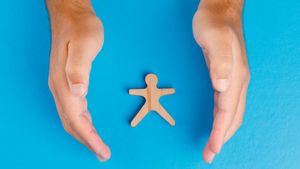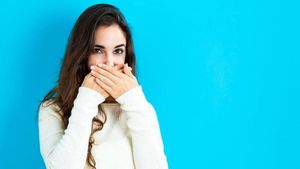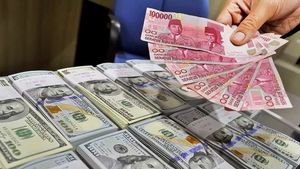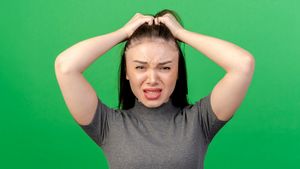JAKARTA - Caffeine is found in various types of drinks ranging from coffee, tea, to soda. The National Coffee Association (NCA) found that about 70 percent of the population in the world drinks coffee at least once a week and about 60 percent drink it once a day.
Caffeine is a psychoactive substance that can increase awareness, energy, and mood boosters and this is the reason why many people choose to drink coffee.
Unfortunately, too much caffeine can cause unwanted side effects, such as anxiety, sleep disorders, stomach disorders, and easily offended. For those suffering from anxiety or other mood disorders, too much caffeine can actually worsen symptoms.
In a comprehensive review of the literature in 2017, researchers found that caffeine is generally safe for moderately healthy adults to consume. But for certain groups that are vulnerable, this can have side effects with potential harms.
In a 2022 study, researchers found that the caffeine found in about 5 cups of coffee could trigger panic attacks in people with panic disorder. They also note that caffeine can increase anxiety in people with panic disorder and healthy adults. However, researchers do not yet know what is the relationship between anxiety and panic attacks caused by caffeine.
Caffeine gives some effect on the human body. One of the main action mechanisms is blocking adenosine receptors. This causes increased dopamine, noradrenaline, and glutamate. A study from 2019 showed that adenosine receptor genes play a role in the development of anxiety.
This relationship can indicate that anxiety disorders due to caffeine are more likely to occur in certain people. However, further research is still needed to find out the relationship.
The Diagnostic and Statistical Manual of Mental Disorders, 5th edition, text revision (DSM-5-TR)i, as reported by Psych Central, Wednesday, December 20, defines anxiety due to caffeine as a condition in which caffeine interferes with daily activity. To diagnose this condition, your symptoms must be directly related to caffeine consumption.
DSM-5-TR also explains possible criteria for disorders of consuming caffeine. They argue that the symptoms of this disorder include:
SEE ALSO:
If you consume too much caffeinated drink, it can cause unwanted symptoms. The Food and Drug Administration (FDA) says that consuming about 400 mg of caffeine or about 4 to 5 cups of coffee a day should not cause any symptoms in healthy adults.
However, if you have anxiety disorders, panic disorders, or other mental health conditions, you should limit or avoid caffeine altogether.
Some of the symptoms of anxiety caused by common caffeine effects include:
If caffeine triggers anxiety, it can also cause you to most likely experience feelings of fear, anxiety, or excessive worry.
The English, Chinese, Japanese, Arabic, and French versions are automatically generated by the AI. So there may still be inaccuracies in translating, please always see Indonesian as our main language. (system supported by DigitalSiber.id)


















